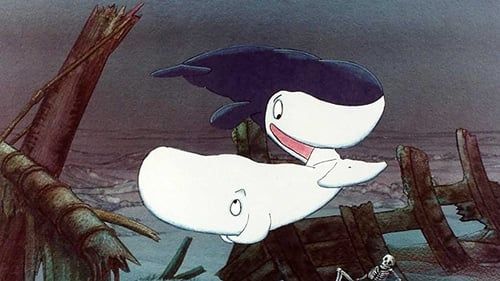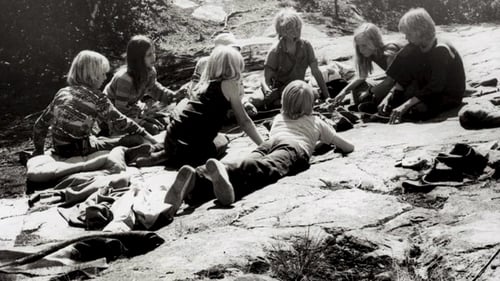
Self
What is the state of cinema and what being a filmmaker means? What are the measures taken to protect authors' copyright? What is their legal status in different countries? (Sequel to “Filmmakers vs. Tycoons.”)

Producer
Report from life at a campsite on Samsø. The campsite is seen as an introduction to Denmark, as a Danish microcosm.

Producer
Samson is a young whale that doesn't have friends. He spends his time listening to his mother's stories about the legendary whale Moby Dick. Samson becomes fascinated about it and decides to go on a journey to find Moby Dick.

Producer
"Evening Land muestra acontecimientos "ficticios" en la Europa de aquel momento comenzando con una huelga en un astillero de Copenhague causada por la construcción de cuatro submarinos para el ejército francés no sólo porque la dirección ha propuesto una congelación salarial para asegurar el contrato, sino porque se descubre que los submarinos han de ser equipados con misiles nucleares. Al mismo tiempo, tiene lugar una cumbre de ministros de la Comunidad Económica Europea en Copenhague, y un grupo de manifestantes radicales secuestran al ministro danés en protesta por la producción de submarinos nucleares en Dinamarca, y en apoyo de las demandas de los huelguistas. La policía danesa no sólo los ataca brutalmente durante una manifestación, también localizan y rescatan al ministro secuestrado y capturan o matan a los "terroristas"." (FILMAFFINITY)

Producer
While on a trip to Sweden, a group of Danish children wind up left to their own devices on a small, uninhabited island.

Producer
Mao Zedong was not only a revolutionary leader and thinker, he was also a poet. In poems written in the classic calligraphic tradition he expresses his experiences and visions. In this film, 8 of Mao's poems are sung, recited and interpreted: 'Changsha' (1925), 'Jinggang Mountains' (1928), 'The Long March' (1935), 'Snow' (1936), 'The People's Liberation Army Captures Nanjing' (1949), 'Swimming' (1956), 'Reply to Comrade Guo Moruo' (1961) and 'Reascending Jinggang Mountains' (1965). Through these poems we get a picture of the Chinese revolution from its first beginning in 1921 until the Cultural Revolution. The poems of Mao Zedong have been published in more than 57 million copies

Editor
Mao Zedong was not only a revolutionary leader and thinker, he was also a poet. In poems written in the classic calligraphic tradition he expresses his experiences and visions. In this film, 8 of Mao's poems are sung, recited and interpreted: 'Changsha' (1925), 'Jinggang Mountains' (1928), 'The Long March' (1935), 'Snow' (1936), 'The People's Liberation Army Captures Nanjing' (1949), 'Swimming' (1956), 'Reply to Comrade Guo Moruo' (1961) and 'Reascending Jinggang Mountains' (1965). Through these poems we get a picture of the Chinese revolution from its first beginning in 1921 until the Cultural Revolution. The poems of Mao Zedong have been published in more than 57 million copies

Director
Documentary about the construction of Thy Lejren in 1970 - an alternative summer camp. Features concerts by bands such as Gasolin' and Gnags.

Writer
Documentary about the construction of Thy Lejren in 1970 - an alternative summer camp. Features concerts by bands such as Gasolin' and Gnags.

Cinematography
Documentary about the construction of Thy Lejren in 1970 - an alternative summer camp. Features concerts by bands such as Gasolin' and Gnags.

Producer
Documentary about the construction of Thy Lejren in 1970 - an alternative summer camp. Features concerts by bands such as Gasolin' and Gnags.









